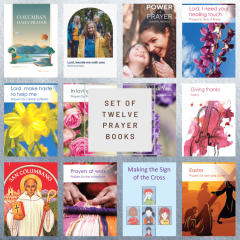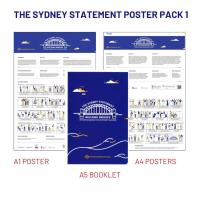
Photo: The Sydney Statement
The World Interfaith Harmony Week was first proposed at the United Nations General Assembly on September 23, 2010, by H.M. King Abdullah II of Jordan. Just under a month later, on October 20, 2010, it was unanimously adopted by the United Nations, and henceforth the first week of February has been observed as a World Interfaith Harmony Week.
The World Interfaith Harmony Week is based on the pioneering work of The Common Word initiative. This initiative, which started in 2007, called for Muslim and Christian leaders to engage in a dialogue based on two common fundamental religious Commandments; Love of God, and Love of the Neighbour, without nevertheless compromising any of their own religious tenets. The Two commandments are at the heart of the three Monotheistic religions and therefore provide the most solid theological ground possible.
The World Interfaith Harmony Week extends the Two Commandments by adding ‘Love of the Good, and Love of the Neighbour’. This formula includes all people of goodwill. It includes those of other faiths and those with no faith.
The World Interfaith Harmony Week provides a platform - one week in a year - when all interfaith groups and other groups of goodwill can show the world what a powerful movement they are. All people of goodwill can recognize that the common values they hold far outweigh the differences they have, and thus provide a strong dosage of peace and harmony to their communities.
Faith and culture come together to share who God is. For Christians, we see this in the life of Jesus, in the early Christian community and now today in all faith traditions and their communities across the world.
Jesus was a cross-cultural Jew. He was open to other cultures and people. Through his encounters with others, his teachings and parables, he lived and proclaimed the Reign of God. His commitment to the Reign of God demanded an extraordinary lifestyle in service to the suffering poor of society. Jesus’ mission statement proclaimed: I have come to seek and save the lost (Lk 9:10) and he offers the extraordinary maxim: “Be compassionate as your heavenly Father is compassionate” (Lk 6:36).
Jesus crossed ethnocultural boundaries to encounter people of other faiths and cultures, for example when he encountered the Samaritan woman at the well (John 4), and he invites us to encounter his presence in people of every faith tradition.
Columban missionaries, in the countries where we live and work across the globe, “have learned that the most effective way to address the pressing social issues of poverty, injustice, ethnoreligious conflict, and environmental degradation is by harnessing the collective wisdom and energies of various religions and indigenous faith traditions.” (Columban Missionaries General Assembly 2018)
In his Social Encyclical Fratelli Tutti, on fraternity and social friendship, Pope Francis stresses the richness of dialogue and the blessings received when people engage in dialogue. He says, “Dialogue can lead to building bridges between people of different values” (FT 203). In his encyclical the Pope calls on the church to commit to fostering a culture of encounter, dialogue and fraternity on behalf of our shared humanity and shared earth.
The Pope highlights what he calls a “cultural covenant”. He says, “When one part of society exploits all that the world has to offer, acting as if the poor did not exist, there will eventually be consequences. A realistic and inclusive social covenant must also be a “cultural covenant”, one that respects and acknowledges the different worldviews, cultures and lifestyles that coexist in society” (FT 219).
Pope Francis reminds us about the virtue of kindness. He says that kindness, the fruit of the Holy Spirit, is in urgent need of recovery. The Pope says, “kindness ought to be cultivated – it frees us from the cruelty that at times infects human relationships – once kindness becomes a culture within society it transforms lifestyles, relationships and the ways ideas are discussed and compared” (FT 224).
Furthermore, Pope Francis says, “Each of us can learn something from others” (FT 215). The youth of Australia have given us a wonderful example. On March 11, 2021, The Sydney Statement, an interfaith charter for building bridges between believers from different religions, was launched at the Sydney Town Hall. The Sydney Statement is unique in that it is led by youth from different religions who share their dream for the future. As we celebrate World Interfaith Harmony Week we congratulate the group of inspirational youth and all those who worked with them and supported them, in preparing this bold and ambitious Statement.
Columban Fr. Kevin O’Neill is a member of the Columban Peace, Ecology and Justice Team.


